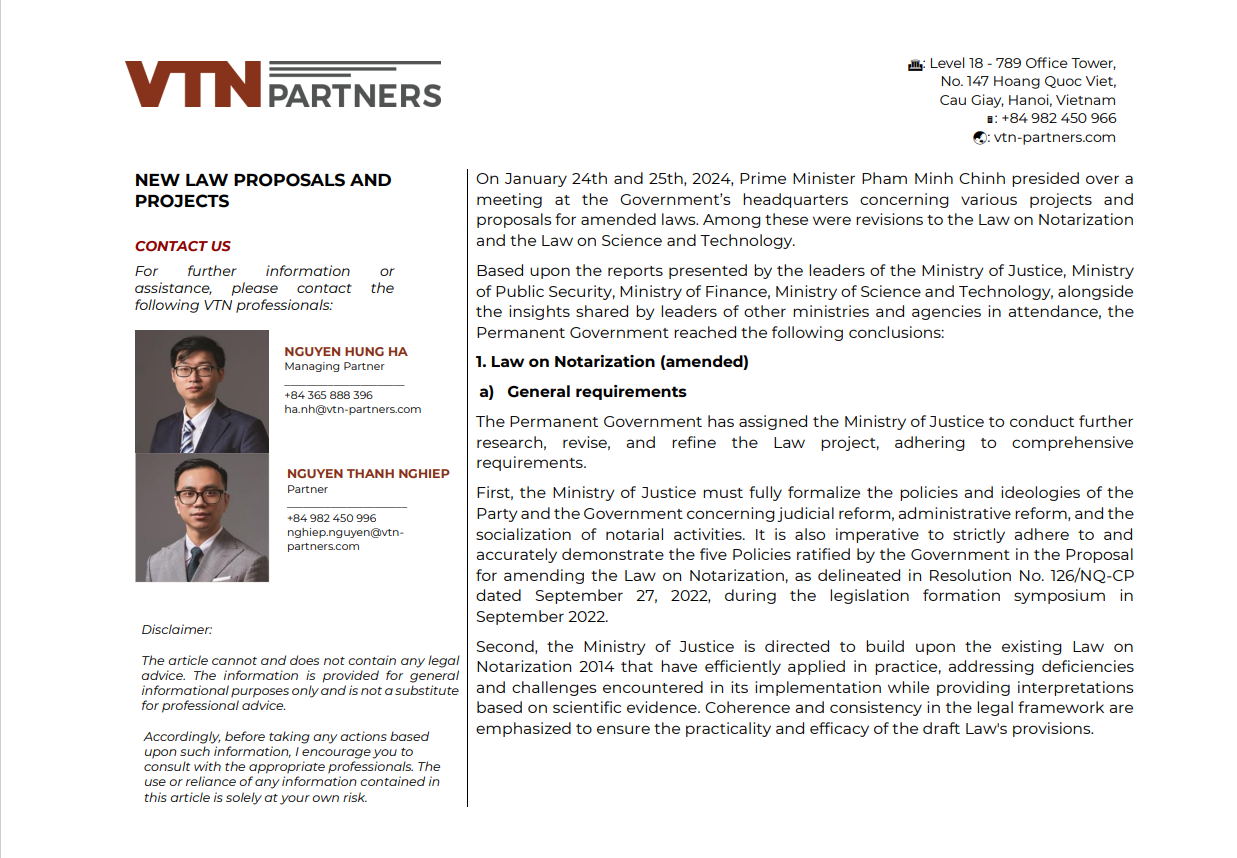This article is written by Nguyen Kien Cuong and edited by Nguyen Thanh Nghiep
The issue of outsourcing in Vietnam is becoming increasingly important in the context of the growing economy and international integration. The emergence of new industries and the rise of construction and manufacturing projects have created a great demand for outsourced labor. However, this situation also poses many challenges, including poor working conditions, violated workers’ rights, and job instability. The main feature of the issue of labor outsourcing in Vietnam is the intensification and diversification of outsourced workers, from agricultural workers to workers in various industries. This article aims to provide the context of labor outsourcing and highlights the important role of creating better working conditions and protecting the rights of employees in this industry.
1. Vietnamese laws on labor outsourcing
1.1. Definition
Pursuant to Article 52 of the Labor Code 2019, labor outsourcing means that an employee enters into a labor contract with an employer that is a labor outsourcing enterprise, after which the employee is transferred to work and is under the management of another employer while maintaining labor relation with the first employer.
Labor outsourcing is a conditional business line that can only be carried out by enterprises that have a labor outsourcing license and apply to certain occupations regulated by the government.
1.2. Principles of labor outsourcing
The principles of labor outsourcing are stipulated under Article 53 of the Labor Code 2019 as follows:
• The maximum duration of labor outsourcing is 12 months.
• The organizations using the outsourced services may hire outsourced employees in the following cases:
– To respond temporarily to the unplanned increase in labor demand over a limited period of time.
– To replace employees during maternal leave, having an occupation accident, occupational diseases, or having to fulfill his/her citizen’s duties.
– There is a demand for highly skilled staff.
• The organizations using the outsourced services must not employ outsourced employees in the following cases:
– To replace employees during a strike or settlement of labor disputes.
– There is no specific agreement with the outsourcing enterprise on responsibility for compensation for the outsourced employees’ occupational accidents and occupational diseases.
– To replace employees who are terminated due to changes in organizational structure, technology, economic reasons, full division, partial division, consolidation, or merger of the outsourced companies.
• The organizations using the outsourced services must not transfer the outsourced employees to other companies; and must not use outsourced employees provided by licensed outsourcing companies.
1.3. Requirements of labor outsourcing
• Conditions to receive a labor outsourcing license and a list of types of jobs that shall be outsourced are regulated under Decree No. 145/2020/ND-CP;
• The salary of an outsourced employee must not be less than the salary of an employee with the same professional qualifications performing the same or a similar job at the organization using the services. At any point, the organization using the outsourced services may agree with the employee and the labor outsourcing enterprise to recruit the employee in case the labor contract has not yet been terminated.
• The Labor Code requires the outsourced employee to obey the internal labor rules of the organization using the outsourced services. However, the organization using the service is not entitled to impose disciplinary actions on the outsourced employee. It can only send the employee back to the labor outsourcing enterprise, which is authorized to discipline the employee.
2. The current situation of labor outsourcing in Vietnam
2.1. Current situation and status of labor outsourcing
The surge in labor outsourcing is driven by business requirements. Many international companies operating in Vietnam consider this labor model as a crucial aspect of their overseas business strategy. Labor outsourcing is particularly significant for businesses that experience substantial fluctuations in production scale throughout the year. These companies typically adhere to a global strategy of maintaining a minimal number of direct employees, relying on a short-term outsourced workforce during peak production periods.
Another factor contributing to the preference for this labor model is the need for short-term roles that do not necessitate regular employee retention. Roles such as administrative assistants, secretaries, or interpreters serve as prime examples.
2.2. Challenges and typical conflicts in outsourcing relations
(i) Handling of confidential information in labor outsourcing:
According to Article 53.1 of the Labor Code 2019, the labor outsourcing term is limited to a duration of 12 months. Consequently, it’s possible for employees, after their contracts expire, to move to similar outsourcing companies or even to competitors. Certain roles that are confidential to the outsourcing company may be involved, leading to potential disputes over technology and trade secrets if there aren’t any specific regulations about confidentiality in labor outsourcing contracts.
(ii) Relationships in labor outsourcing contracts:
Labor outsourcing contracts govern the relationship between the labor outsourcing enterprise and the organization using the outsourced services. The Labor Code 2019, however, lacks detailed guidance on trade and service aspects of these relationships, such as the provision of services either within or outside Vietnam, pricing, and payment schedules. Service fees are a key concern for both parties and without explicit regulations on trade and service matters in these contracts, there’s no solid legal foundation to protect the rights of the labor outsourcing enterprise or to clearly define the responsibilities of the involved parties.
(iii) Execution, Termination, and Invalidity of Labor Outsourcing Contracts:
The Labor Code 2019 does not specify procedures for executing or terminating labor outsourcing contracts, nor does it outline when such contracts might be considered null and void. This omission makes it challenging to assign responsibilities and to protect the legitimate rights and interests of the parties involved, creating fertile ground for disputes regarding the rights and obligations that arise from labor outsourcing contracts.







